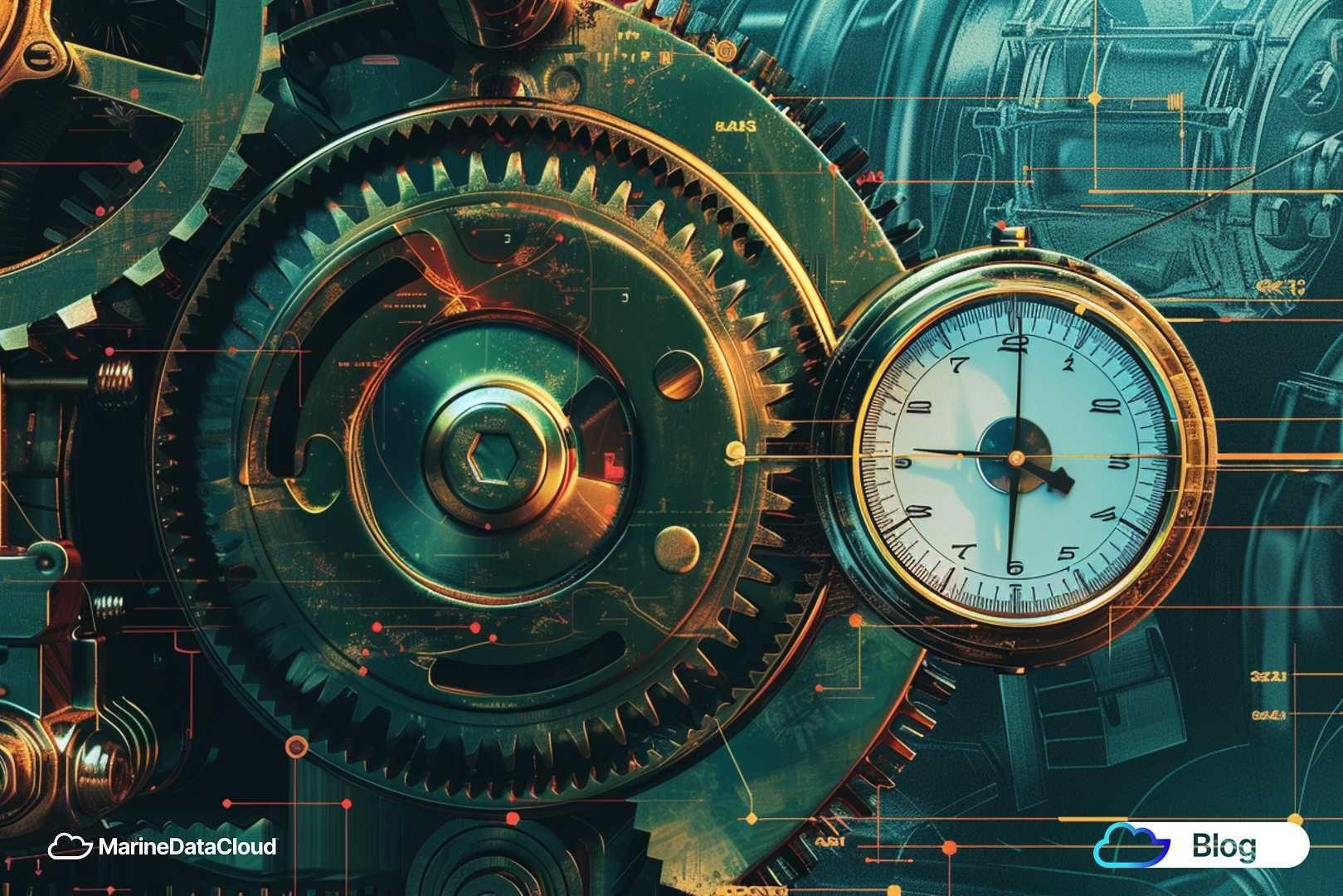Mastering the Monitoring of Boat Engine Hours

A Holistic Approach to Understanding and Monitoring Boat Engine Hours
Just as a captain keeps a keen eye on the horizon, so too must they monitor the heart of their vessel - the engine. Boat engine hours stand as a critical gauge of your engine’s health and activity level, much like the pulse of the craft itself. The continuous cycle of maintenance required to keep a boat in the best condition is an integral part of boat ownership. Among all the crucial factors that demand consideration, the boat engine hours withstand significant importance. Understanding and effectively tracking the engine hours of your boat could help track the health, usage, and operational status of your boat's motor.
What Are Boat Engine Hours?
At its core, boat engine hours reflect the time your engine spends in operation, logged in hours and minutes. Whether through a traditional engine hour meter or a tech-savvy electronic system, keeping track of these hours is akin to charting a course - it helps you understand the journey your engine has been on. Much like the concept of an odometer in vehicles, boat engine hours provide an expression of the overall usage and age of the boat’s engine.
Why Tracking Engine Hours?
Engine hours are a strategic tool for the analysis of equipment performance, scheduling regular maintenance, and gauging the potential resale value of your equipment. It helps determine the overall lifespan of the boat’s engine and its wear level, making it an essential piece of information to track when considering the maintenance or potential repair requirements.
- Maintenance Planning: Regularly monitoring of engine hours help in maintenance planning. This results in minimising unexpected breakdowns, thus ensuring optimal operational efficiency of the boat.
- Performance Evaluation: Engine hours provide reliable data to review equipment's lifespan performance, encouraging timely maintenance or replacements.
- Cost Efficiency: By analysing engine hours, it becomes easier to understand fuel consumption patterns, boost efficiency, diminish operational costs, and enhance overall profitability.
- Preservation of Resale Value: Lower engine hours typically equate to reduced wear and tear, thus proving beneficial for equipment’s resale value.
- Rent/Lease Evaluation: Tracking engine hours dictates the fair usage rates and thereby ensures accurate billing in rental or leasing agreements.
- Warranty Compliance: Engine hours also aid in keeping warranty terms in check.
- Health Checks: Regular monitoring of engine hours gives insights into the performance trends of the boat, suggesting when an inspection or part replacement may be necessary.
- Productivity Analysis: Analysing engine hours allows to gauge the utilisation rates of the boat, and make informed decisions.
Tracking Engine Hours
Eyes on the prize — keeping a precise log of engine hours can be straightforward with the right tools and practices. Here’s how:
- Install an Engine Hour Meter: A reliable sentinel for your boat’s engine time. Accurate tracking of engine hours could be achieved by installing a reliable engine hour meter. Post-installation, calibrating the meter as per the manufacturer's guidelines becomes critical for precise time monitoring.
- Logbook Lore: Consider implementing the practice of maintaining a logbook. It is a good habit to record engine hours after every ride, documenting the start and end time of the journey along with other relevant comments.
- Idle Time Awareness: Understand that both operational as well as idle time contribute to engine wear. Engine longevity may be impacted by long periods of non-operating your engine.
- Digital Monitoring: Embrace digital monitoring for a comprehensive view of your engine’s performance. Consider a digital engine monitoring system, which not only measures engine hours but offers real-time data on engine's vital operating parameters such as temperature, oil pressure, rotations-per-minute, fuel use and more.
- Fuel vs. Hours Analysis: Keep your engine’s appetite in check by comparing consumption versus runtime. Not only this may help you identify consumption versus usage patterns and assist to improve your fuel efficiency but much more can provide early-symptoms indications of possible problems much before any engine failure incident.
Leveraging Engine Hours for Maintenance & Upkeep
With a solid grasp of engine hours, adhere to the engine maker’s care schedule like a ship follows the stars. Documenting each service, inclusive of engine hours, equips you for routine maintenance and troubleshooting. Understanding and diligently charting engine hours are akin to navigating the vast seas - essential for a vessel's longevity and zest. By incorporating these practices, guided by the insights from Marine Data Cloud, you maintain your boat in prime condition, ready to embark on countless journeys across the water.
TheBoatApp provides you with the proper tools to track your boat's Maintenance as well as fully document your Operations-logs, providing a lighthouse for keeping your engine in ship-shape, ensuring you’re well-equipped to manage your marine data, embracing the holistic vision of hassle-free boat management.